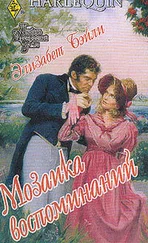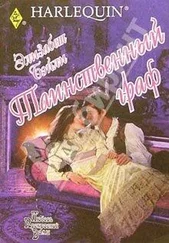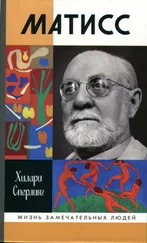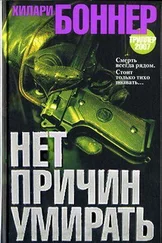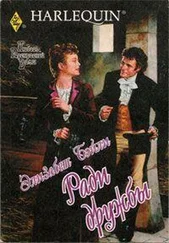Хилари Бэйли - The Ramparts
Здесь есть возможность читать онлайн «Хилари Бэйли - The Ramparts» весь текст электронной книги совершенно бесплатно (целиком полную версию без сокращений). В некоторых случаях можно слушать аудио, скачать через торрент в формате fb2 и присутствует краткое содержание. Жанр: Проза, на английском языке. Описание произведения, (предисловие) а так же отзывы посетителей доступны на портале библиотеки ЛибКат.
- Название:The Ramparts
- Автор:
- Жанр:
- Год:неизвестен
- ISBN:нет данных
- Рейтинг книги:3 / 5. Голосов: 1
-
Избранное:Добавить в избранное
- Отзывы:
-
Ваша оценка:
- 60
- 1
- 2
- 3
- 4
- 5
The Ramparts: краткое содержание, описание и аннотация
Предлагаем к чтению аннотацию, описание, краткое содержание или предисловие (зависит от того, что написал сам автор книги «The Ramparts»). Если вы не нашли необходимую информацию о книге — напишите в комментариях, мы постараемся отыскать её.
The Ramparts — читать онлайн бесплатно полную книгу (весь текст) целиком
Ниже представлен текст книги, разбитый по страницам. Система сохранения места последней прочитанной страницы, позволяет с удобством читать онлайн бесплатно книгу «The Ramparts», без необходимости каждый раз заново искать на чём Вы остановились. Поставьте закладку, и сможете в любой момент перейти на страницу, на которой закончили чтение.
Интервал:
Закладка:
“As it is,” I said.
“Oh, certainly,” Regan said. “The cities came out of the ruin created by violence, aggression and competitiveness. But our fear of violence may have been as destructive as the violence itself. Do you know what it’s like to rear a child in constant terror of its rages, its hatreds, its inability to tell the difference between order and chaos? And then to know, and have to pretend not to know, that all these things were in us once— and probably still are? You men — hypocrites, all of you. Your Unexpected Arrivals — unexpected by you, perhaps, not by us. Your solemn conclaves, decisions that someone must leave the city for this crime or that. We women conceal the worst for you — we hide births and deaths, we deal with malformed babies as we’ve always done, we get sent away for conceiving, for giving birth without permission, we hide children who bite, whine and scream until we can eradicate enough of them to present them as citizens, we secretly threaten the older children until they abandon their uncontrolled way. And then we conceal from ourselves what we do.”
“I’m going to bed,” I said.
“Go to bed,” she said. “But we still have to face the results of what we’ve done. And what about Arthur?”
“What about him?” I asked.
“What about him indeed,” she said savagely. “When it happens — this thing we aren’t talking about — what will happen to Arthur?”
“I’ll think about that in the morning,” I said.
“Goodnight,” she said. “Goodnight.’
the drums do not beat anymore. It is the Holy Time.
It is happening at last.
Night after night we have come up to my room here at the top of the house. We have eaten and sat in silence as the darkness came down, catching the scents and gentle sounds from the city on one side, seeing the trees of the forest waving ahead on the other. The ramparts creep up a little each day. They are three feet high now and go all around the town at that height, like a tpy wall to stop little children from straying.
Almost every night Keeney comes at the same time and paces the length of the wall as far as we can see, with his short, heavy steps. Sometimes I think I can see him smiling.
The matters of the dog and his unexplained absence have never been raised. No one wants to know. So Keeney pads around his ramparts every night in peace.
But tonight everything is different. The city — men, women and children — have all come out in the soft, evening air. They are strolling about or sitting in groups all over the lawn behind the ramparts. The women are sewing, children playing ball, men chatting. We can hear laughter.
Arthur, sitting quietly with us, does not ask why they are there or want to go out and join them. His eyes have grown large over the weeks. We cannot tell him what is wrong. But I think he knows.
And, as we watch, it grows darker. Torches are brought out on stands and the stands are placed on the grass. There is a fire in the center of my smooth lawn. The women are heating food. Now we see people moving in and out of the light cast by the fire and the torches. An innocent and pleasant scene.
As they did not know why they wanted the wall, so they do not know why they are gathering behind its unfinished length.
Now it grows dark, really dark. There is a full moon which shines down when the cloud is not over it. It eclipses the light thrown by the torches. The children are laughing harder. The men talk more, the womens’ voices grow shriller. Some children are tired and crying.
Regan and Arthur sit with their arms around each other, looking from the window. We three notice, from our vantage point, that the branches on the forest trees are beginning to shake, although there is no wind.
Our citizens begin to sing an old song, a high, clear song. They stand in the dark singing. Tears begin to run down Regan’s cheeks.
And the first man comes out of the trees. He is very pale. He blinks, screws up his face against the light. He is a small man dressed in skins, with blue tattoos up his arms. He seems about to return to the safety of the trees and has taken a step back when the bushes part again and his woman, long-haired, tattered and very thin, comes out and stands beside him. She has only one eye. The other one is covered by a mass of scarred skin. She pulls and something, a child, comes out of the forest and stands in front of her. It is a small boy, barefoot and wearing a torn pair of shorts. He stands, head lowered, holding her hand. His head is scabby; patches of hair have fallen out completely.
Regan looks at the trio calmly. What does she think? That the woman might be her sister Jessica, who walked out into the forest when she became pregnant without authority for the second time? That the woman might have been she?
Quietly, the bushes part again and again. More and more of the forest people appear and stand together silently at the edge of the trees, getting used to the light falling into their eyes. There is a woman in a stocking cap. There is a fat man gnawing on a bloody bone. Strange how, even at this point, I find the sight of the blood running down the corners of his mouth so disgusting.
“Keeney,” whispers Regan, incredulous.
Yes, of course the man in front of the wild men is Keeney. He stands there in a suit, gnawing his piece of meat, talking to a small man in front who carries a club.
Our citizens go on singing. They have not yet seen the men and women on the other side of the barrier. But now, over the song, I hear the drums inside the forest pounding out a strong, meaningless rhythm; and as the drums get louder, the singers, at last, hear them, and their song falters and dies away. They peer across the ramparts, trying to see what is happening.
Keeney whispers to his companion, the small man. The forest people seem to gather themselves together. The drums beat louder. Suddenly the wild men and women begin to scream. Yelling in high, weird voices, they run to the ramparts, scramble over them and hurl themselves at the citizens, clubbing and spearing. In one corner Keeney’s dog fells a child and mauls it. The child’s mother tries to pull it off but the animal is tearing at its prey. The child’s face screams in the moonlight. Then the moon is covered by a cloud. In the darkness there are howls. Torches are overturned. In the light thrown by the fire I see the townspeople milling about, falling, crying out. They are like children. They do not know what is happening to them.
Arthur is asleep, asleep forever now. Our house is quiet as Regan and I watch the carnage below.
Yet I am not shocked by the scene, by the thought of our city in flames, as it will be, the pillars, the flower gardens, the fountains all destroyed. Our city turned its back on pain, violence and disorder. Now the accumulation of all that chaos over five hundred years is on us.
The horde pauses in its work. The moon reappears. Our men, women and children lie dead and wounded on the torn-up grass. The people of the forest look at the house and suddenly, like leaves driven by the wind, they begin to run toward us. Keeney, at their head, glances up at the window where I am sitting. He opens his mouth in a scream and leads them on and on in my direction. Soon we will hear their feet on the stairs.
Soon. Very soon.
Интервал:
Закладка:
Похожие книги на «The Ramparts»
Представляем Вашему вниманию похожие книги на «The Ramparts» списком для выбора. Мы отобрали схожую по названию и смыслу литературу в надежде предоставить читателям больше вариантов отыскать новые, интересные, ещё непрочитанные произведения.
Обсуждение, отзывы о книге «The Ramparts» и просто собственные мнения читателей. Оставьте ваши комментарии, напишите, что Вы думаете о произведении, его смысле или главных героях. Укажите что конкретно понравилось, а что нет, и почему Вы так считаете.

